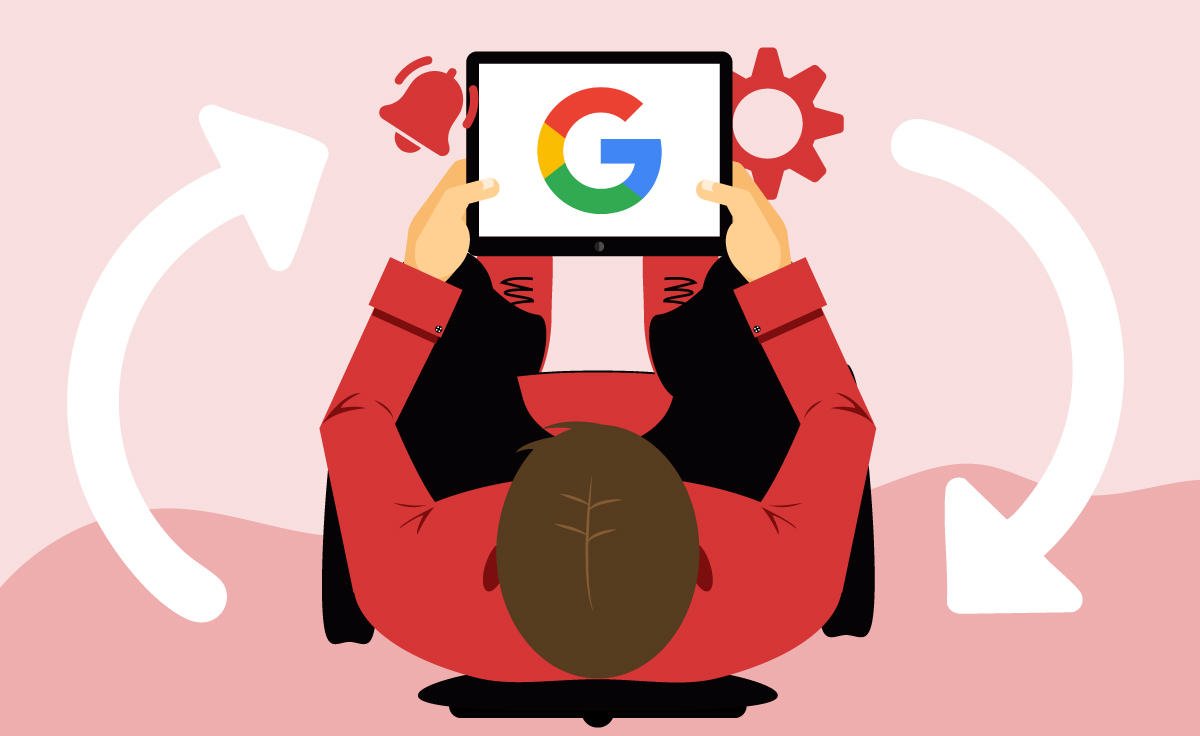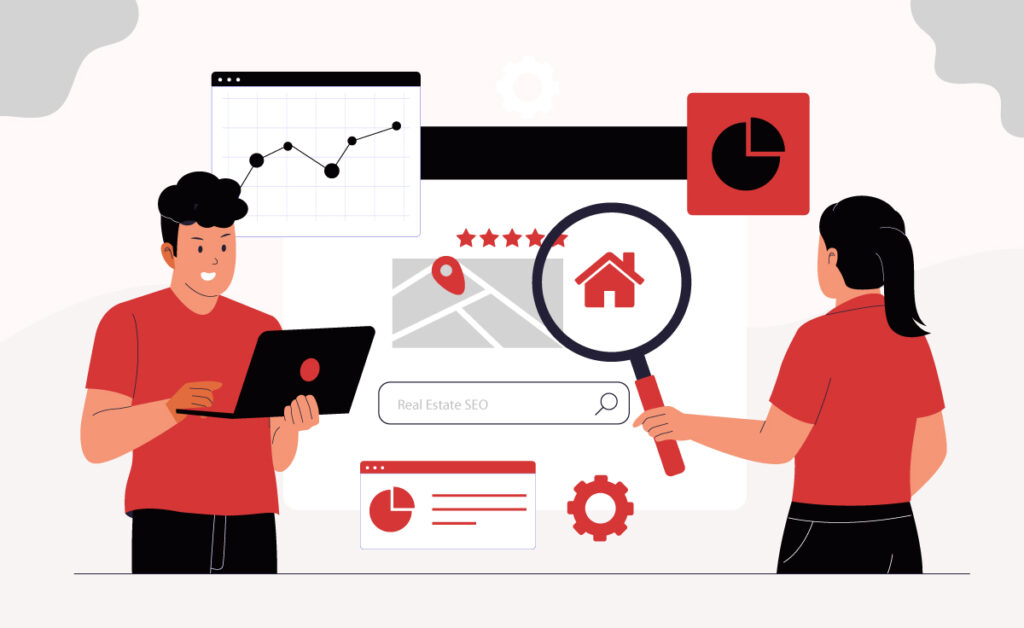If you want to stay safe from traffic drops, you need one rule: Be current and adapt fast. Google’s algorithm updates seen so far in 2025 prove again that SEO is never static.
As of August 2025, Google has rolled out at least four updates this year. The most notable include the March and June 2025 Core Updates and the August 2025 Spam Update, along with other unconfirmed changes, according to Search Engine Land.
Instead of scrolling through search results, people are increasingly turning to AI-generated answers for instant information. Updates now roll out so quickly that what works today may sink tomorrow. It’s natural for traditional agencies to struggle to keep up, lest the tide carry them away.
Founded in 2014 and trusted by 300+ businesses and agencies, at Justwords, we’ve witnessed this gradual shift firsthand. With over a decade of delivering large-scale SEO and partnerships across industries, we know it’s resilience, flexibility, and quick adaptation that protect revenue.
We’ve helped agencies of all sizes take command of their ship amidst shifting waters, empowering them with the expertise to protect client reputation and make brand building measurable and actionable.
Let’s break down the Google algorithm changes this year, how Google’s search algorithm works now, and what strategies agencies can adopt to survive.
The 2025 Core Update: What Really Changed
Every core update shakes the table and resets the global SEO map. But the 2025 core updates definitely felt a little heavier.
The rollout stretched across four weeks, and industries like ecommerce, finance, and local services were hit hardest. Some agencies reported sudden 20 to 30% swings in non-branded traffic within days.
Meanwhile, others gained visibility overnight as the traffic system got reshuffled.
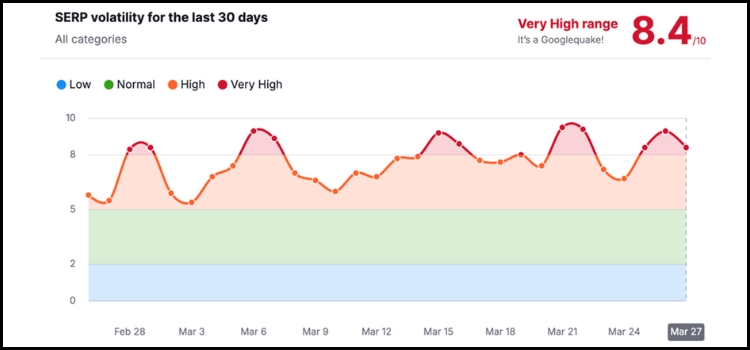
Source: Marketing Aid
So what’s behind the shuffle?
- First, original, expert-created content from experienced authors now carries more weight. Remember Google E.E.A.T.? Pages rewriting what’s already online are sliding down.
- Search intent matching is sharper. Google wants the most direct answer, not filler or sales pitches. If you’re writing in riddles or taking roundabout paths to get to your point, you aren’t going to see results.
- Site reputation is under the microscope. Brands with weak authority or poor signals are falling off. Google and LLMs pull information from websites with authority, trust, and legacy.
Now, why do white-label SEO teams catch this faster than in-house setups? Because, for white label teams like Justwords that know their onion, it’s not just watching single keywords.
Looking at a single keyword like “buy running shoes” doesn’t tell you much. Instead, we group keywords into categories such as “product research” or “local intent.” If a whole category drops, it signals that Google has shifted what it expects.
When that happens, we test small adjustments on a few pages, confirm what works, and then apply those fixes across the site. This approach keeps us steady instead of scrambling. Agencies that work with white-label teams benefit from tested, documented solutions across industries while competitors are still trying to figure out what went wrong.
AI Overviews Are Changing Clicks
Google now surfaces AI Overviews (previously called SGE) for complex queries. They summarize answers right above organic results. That means your hard-earned #1 spot may sit below a giant box stealing clicks.
After all, think about the last time you casually looked up something online. Did you scroll through ten blogs, or did your eyes stop at Google’s AI Overview?
Have a look:

What this means: CTRs are shifting. Sites are seeing drops of 18–64% in organic CTR due to queries with AI Overviews. Users now get everything they want without ever clicking on a single link.
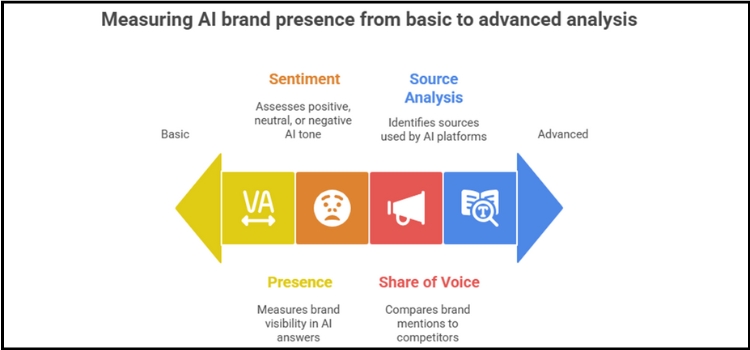
How to adapt in a “zero-click” environment:
- Write in ‘answer-first’ formats.
- Add concise FAQs with schema.
- Use structured content that feeds AI summaries.
For example, a “How to fix a leaking tap” guide should open with a two-sentence answer, then break into steps. This ensures you’re quoted and not skipped.
Spam Policies: Why Quality Is Non-Negotiable
2025 also saw tighter spam updates. Google explicitly penalizes scaled AI-spam, spun content, and clickbait. Pages stuffed with keywords but lacking original insights are tanking.
For white-label SEO, this sets a clear rule: only create content with evidence of expertise. That means:
- Named authors with bios.
- Verified sources for claims.
- Fresh updates with real edits.
- Product pages with real images, specs, and reviews.
Agencies that outsourced bulk, templated blogs without a clear strategy are now cleaning up penalties.
How Ranking Works in 2025
At its core, ranking is still about signals. But the weight has shifted.
Key signals now include:
- E-E-A-T: Experience, Expertise, Authority, Trust. Pages with credentials and proof of expertise have better chances.
- Technical health: Site speed, clean architecture, Core Web Vitals.
- Schema: Clear structured data to power AI Overviews and rich snippets.
Google’s thresholds are clear. Largest Contentful Paint must be under 2.5s. Cumulative Layout Shift under 0.1. Interaction to Next Paint under 200ms. These numbers are Google’s official Core Web Vitals targets.
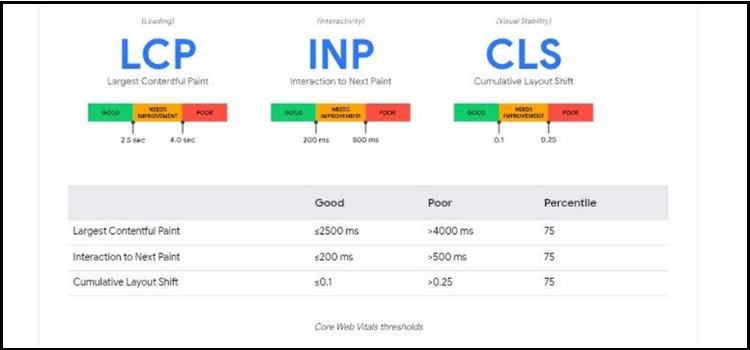
SEO Strategies That Work in 2025
So, how can agencies respond effectively? Here’s a structured playbook to guide the way:
Weekly tasks
- Track volatility across query classes.
- Test title and schema tweaks on key pages.
- Monitor AI Overview footprint and CTR shifts.
Monthly tasks
- Audit new errors and fix deltas, not just totals.
- Refresh content with new data, screenshots, and FAQs.
- Upgrade technical performance templates.
Quarterly tasks
- Run competitor content gap studies.
- Build authority via PR mentions and industry citations.
- Simplify site architecture for crawl depth.
Content focus
- Start with direct answers.
- Add FAQs with schema.
- Include case examples and updated data.
Diversify channels
Relying only on organic is risky. Build email newsletters, LinkedIn posts, and owned communities. Repurpose SEO content into short videos for reach.
How We Help Agencies with White-Label Solutions
If this sounds like a lot, that’s probably because it is.
The right white label SEO company can manage this entire cadence under your brand. Every report carries your branding, every fix is documented, and every insight is backed by data. For your clients, it feels like seamless delivery, while we handle the heavy lifting behind the scenes.
Your clients will view that professionalism positively, and you gain a more balanced, results-driven approach to SEO and content strategy, without needing to do it all yourself.
Frequently Asked Questions
1. What is the latest Google algorithm update in 2025?
The most recent update was the June 2025 Core Update. Google didn’t give it a name, but it rolled out across June and caused big ranking changes, especially on mobile. Many agencies saw sites jump one week, then tumble the next. That’s why we keep an eye on query classes daily. Our white label digital marketing services track this volatility and adjust quietly in the background.
2. What changes came with the 2025 Google updates?
In 2025, Google leaned harder into intent, originality, and spam clean-up. Copycat blogs and templated service pages dropped. Brands that publish experience-based content, like walkthroughs, customer data, or expert insights, have actually gained ground. If your site lost traffic, it’s a sign that your content probably needs rework.
3. How can agencies stay ahead of Google algorithm changes?
Don’t wait for rankings to tank before acting. Run regular audits, spot-test fixes in small batches, and refresh your top-performing pages every quarter with new information, data, and examples. Add E-E-A-T elements (author bios, updated dates, first-hand proof) on every page. It sounds heavy, but that’s the routine white-label teams can run at scale, so you can focus on clients while we handle the grunt work.
Conclusion
Google will always move the goalposts. The difference is whether you scramble to catch up or have a system that keeps pace.
If you want to stay steady through each of Google’s algorithm updates or plan a post-impact strategy, chat with Justwords about our white-label SEO services. We’ll do the tracking, testing, and fixing, including content, so you can focus on winning more clients and growing your brand.

